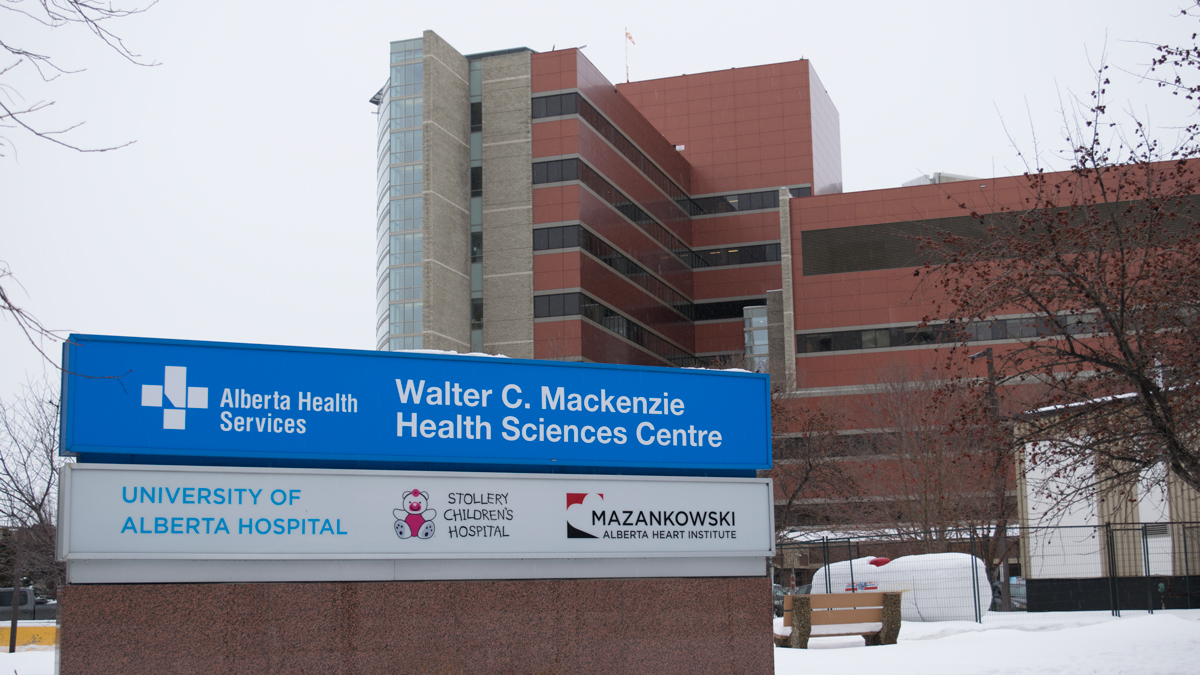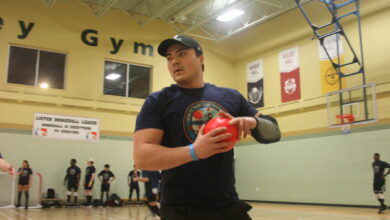 Alexander Cook
Alexander CookUniversity of Alberta alumna and Stollery Children’s Hospital nurse practitioner Wendy Beaudoin is researching post-traumatic stress disorder (PTSD), depression, and anxiety in the family members of pediatric surgery patients.
PTSD is a psychiatric disorder caused by experiencing a traumatic event. Beaudoin’s most recent research investigated PTSD amongst caregivers of pediatric neurosurgery patients. The study concluded that the cumulative impact of traumas, such as repeated hospital visits and surgeries, contribute to instances of PTSD in caregivers. According to Beaudoin, 44 per cent of caregivers screened positively for a provisional PTSD diagnosis.
“It’s a clear issue within our patient population,” Beaudoin said.
“When everybody says it could be worse, it’s okay to think it could be better,” Beaudoin says
In her work as a nurse practitioner for pediatric neurosurgery and neuro-oncology, Beaudoin noticed a pattern of parents struggling with their mental health while managing their child’s health concerns. According to Beaudoin, many parents deny themselves permission to express sadness about their situation.
“When everybody says it could be worse, it’s okay to think it could be better. It’s okay to be upset, it’s okay to be angry,” she said.
Beaudoin said she hopes her research can be a source of validation for struggling parents. It can be comforting for parents to know that “four or five out of ten people sitting in the waiting room with you are thinking the exact same thing,” she said.
When Beaudoin shared her research with nurse practitioners in other areas of the hospital, she said they shared similar stories.
“We then decided that we would actually do it for all services and expanded the study,” Beaudoin said. “I’m not sure that the number of surgeries or type of surgery is going to matter. I think it’s the trauma and the unknown of it all.”
Beaudoin’s current study “is looking at depression, anxiety, and PTSD in siblings of any child who has had surgery at the Stollery Children’s Hospital at least a month ago.” The study is half-way through data collection and Beaudoin is aiming to finish recruitment by the end of the year.
Although the study is still collecting data, the instances of depression and anxiety in the study participants are already “infinitely higher than the general population,” Beaudoin said. It is “four times higher for depression and six times higher for suicidal thoughts,” she added.
Beaudoin and her family’s personal connection to the research
Beaudoin’s daughter Olivia has complex hydrocephalus, a medical condition in which abnormal amounts of cerebrospinal fluid build up in her brain. Olivia has had over 76 surgeries for her condition.
Despite being a nurse practitioner for pediatric neurosurgery and neuro-oncology, Beaudoin said she found herself struggling to accept the ongoing nature of her daughter’s condition. She described an unexpected moment of overwhelm “realizing it never ends.”
When friends questioned if she had PTSD, Beaudoin initially “just shrugged it off.” She then began researching PTSD and realized she had many of the symptoms.
When Beaudoin’s other daughter read her research on PTSD, she realized she had it too. “I honestly couldn’t breathe in the moment, because I knew right away she was right,” Beaudoin said.
Beaudoin’s experience with PTSD allowed her to recognize similar symptoms in the caregivers of her patients.
According to Beaudoin, there is a popular misconception that PTSD is reserved for large traumatic events.
“I would like people to know is that it can also be an accumulation of multiple small traumas,” she said.
Additionally, through her work Beaudoin said she wants to highlight the “full spectrum of those affected by PTSD.”
“I hope there is a voice for all people impacted by trauma in their life.”




